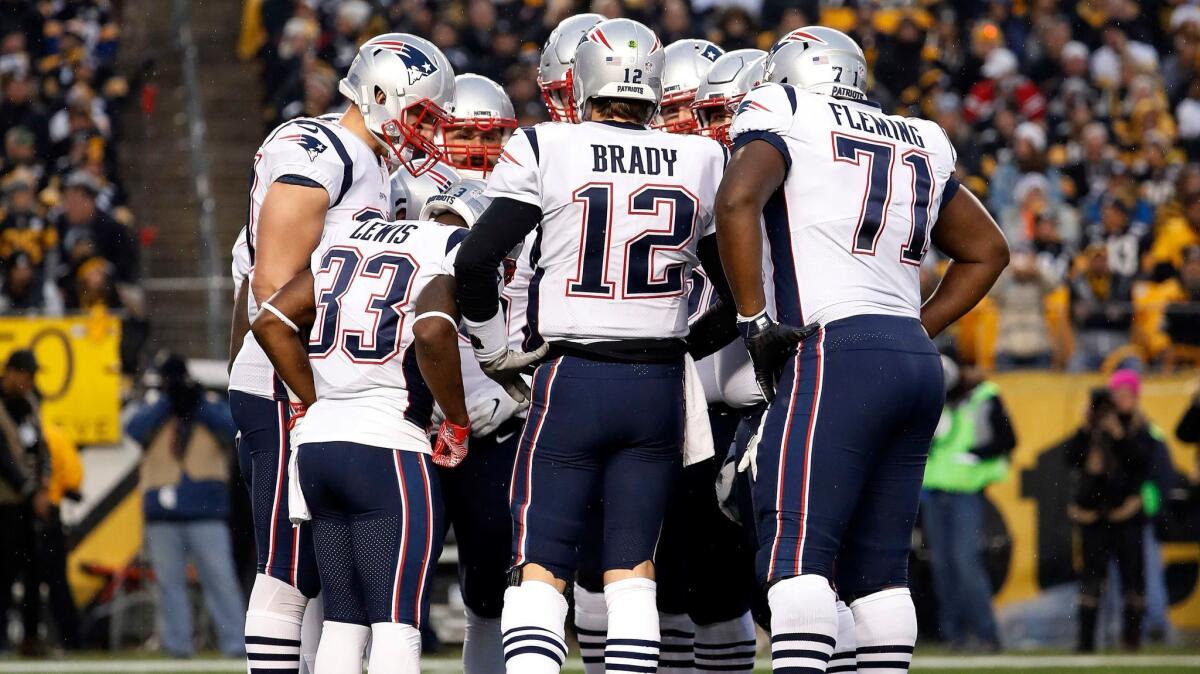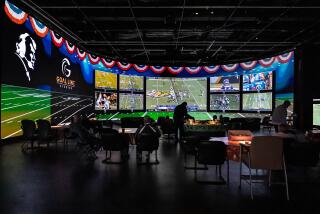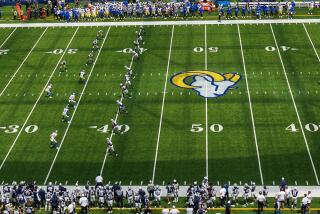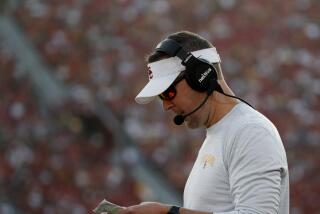Ask Farmer: How much do players rely on what is said in the huddle?

Have a question about the NFL? Ask Times NFL writer Sam Farmer, and he will answer as many as he can online and in the Sunday editions of the newspaper throughout the season. Email questions to: sam.farmer@latimes.com
Many times, players walk away from the huddle before the quarterback finishes play calling. How much do players on the field rely on the quarterback’s comments in the huddle? Do players get info on the play by looking at sideline signals?
Sheldon Lazar
Northridge
Farmer: Not to walk away from this question before you finish, but I’m going to step aside and hand off to former NFL quarterback Trent Dilfer on this one: “Offensive players rely less on the quarterback in the huddle than ever before, because some of [the play calling] is being done by the sideline. Also, a lot of teams are going up to the line of scrimmage with a shell play and then redefining what the play is based on what the defensive look is. Peyton Manning did this for years. He’d go with what you’d call an ‘ice cream count,’ which is a standard formation, make it look like a play, and then a dummy count. It was, ‘Whatever I say as an ice cream count doesn’t matter. We’re not going until I activate the play with a code word.’ So my code word is ‘Sam Farmer.’ Once I say that, everything I say matters.”
As far as players leaving early, that does happen, and on occasion the offensive linemen who have left will miss an important tidbit. From time to time, a quarterback will save some special blocking instructions for the end of the play call. “What I would do,” Dilfer said, “is in the beginning of the call I’d say, ‘Hey, stick with me for the whole play call. I’ve got some stuff on the back end.’ I’d tell them, ‘Nobody leave!’ I might tell the offensive linemen, ‘Hey, just be a little more stout up front because I’m going to hold this ball a tick longer on this one.’ ”
::
How is compensation, if any, provided to the network that loses an attractive game to another network?
John Snyder
Newbury Park
Farmer: There isn’t any compensation, per se. Only the warm, fuzzy feeling associated with giving. Actually, the networks know that the NFL tries to treat everyone equally. That includes when the schedule comes out in April, when the league makes its flexible scheduling and cross-flex decisions — moving games laterally, from one network to another — and when the postseason schedule is set next weekend. It’s a balancing act for the NFL in trying to do right by the networks, the teams, the fans, and making the biggest games available to as many viewers as possible.
The league didn’t flex out of any Sunday night games this season. NBC had some good luck in November and December. They weren’t always the best games, but the objective of flexing is to make sure there isn’t a lousy matchup in that national slot.
Twitter: @LATimesfarmer
More to Read
Go beyond the scoreboard
Get the latest on L.A.'s teams in the daily Sports Report newsletter.
You may occasionally receive promotional content from the Los Angeles Times.











